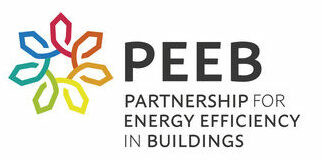A recap from PEEB-GlobalABC Climate Week Roundtable
On September 23 2025, PEEB and GlobalABC hosted a roundtable at Climate Week New York City to pave the way for increased development bank action for sustainable buildings. Co-chaired by Dr. Lutz Morgenstern (German Federal Ministry for the Environment, Climate Action – BMUKN) and Ambassador António da Costa e Silva Neto (Ministry of Cities, Brazil), the event gathered high-level representatives of governments, public and private banks to find common solutions for one of the biggest challenges of our time: making the buildings of the future healthy, environment-friendly, and affordable.
Development banks are an essential piece in this puzzle: responsible for 10% of global investment, they invest directly in the specific contexts where buildings are planned, financed, and constructed. Participants brought context-specific finance challenges that demand tailored solutions to the table. Yet, they all agreed one thing: throughout a diversity of contexts, (development) finance institutions face many common challenges. Therefore, peer learning and knowledge exchange among finance institutions have a transformative potential in mobilising investment for energy efficient, resilient buildings.
In this article, you can read the key outcomes of the discussion and discover how they are shaping the agenda on sustainable building investment!
Outcome highlights: change is happening, but it needs to scale
1. Financial institutions are aligning strategies toward sustainable buildings at all levels.
– Change is under way: development banks are integrating energy efficiency into institutional strategies and mainstreaming sustainability standards across their portfolios.
-Targeting is key: banks are increasingly deploying financial products through dedicated channels (e.g., green mortgages, green bonds, blended finance, PPPs) to target the building sector more effectively.
2. Capacity, finance, and policy frameworks remain critical for bottlenecks.
– Deepening knowledge is a priority: institutions highlighted the need for in-house technical capacity to assess green building projects, alongside dedicated financial instruments that can be scaled.
– Tapping into resources is needed: access to international climate finance is essential for national and subnational development banks to expand their green building portfolios.
3. Policy action is essential to unlock investment flows.
– Robust policies – a necessary condition: participants called for stable, predictable, and enforceable regulations, including building codes and sustainable finance taxonomies.
– Consider the context: Smart incentive mechanisms — both financial (tax benefits, subsidies) and non-financial (priority permitting green buildings) must be tailored to local contexts.
– Governments play a crucial role: they can set strong market signals through public procurement and by supporting international exchange in sustainable construction frameworks.
The road ahead
Roundtable outcomes are clear: large-scale, long-lasting building sector transformation demands a package of solutions on levels. Given the right tools and capacities, financial institutions on all levels – local, national, regional – play a central role. Their impact, however, depends on a strong foundation of policy frameworks and incentives.
Those insights will inform high-level policy discussions at the first meeting of the International Council on Buildings and Construction at COP30 in Belém – 11/11 for SDG 11. There, Ambassador da Costa e Silva Neto will again highlight the critical role of local authorities, and the German government will again highlight its commitment to promote sustainable buildings internationally.
PEEB is part of this commitment, and is already working to support development banks in their buildings investment journey: PEEB’s development banks training, launched during the roundtable, is a stepping stone in this direction. The pilot is now ready for implementation and is accessible through GlobalABC’s finance hub.
